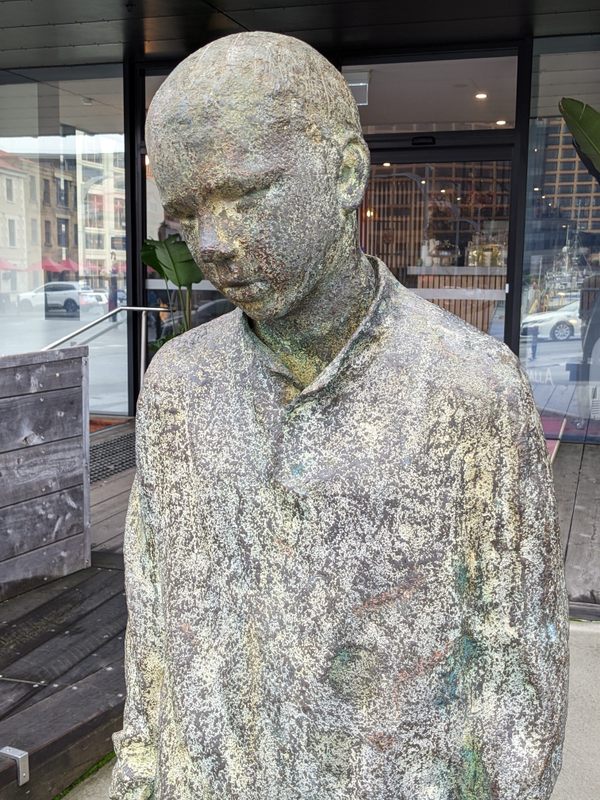Unveiled in 2017, this sculpture by Irishman Ronan Gillespie also pays tribute to the 2,000 children that were sent on that journey, with perhaps the most arresting part of the piece being the small, shaven-headed boy at the back of the line behind the thin, bonneted and bedraggled women.
The sculpture is located on Macquarie Wharf, close to the location of small, rocky Hunter Island, the initial landing site of the first Lieutenant Governor, David Collins.
After disembarking, the exhausted women and children would have walked into the town and looked up to see the snow-topped Mount Wellington/kunanyi, before the women were marched off to jails and institutions that predated the Female Factory workhouse.
Located in the Cascades western suburb, this workhouse was a sickly and brutal place open from 1828-1856, and was designed to keep the women away from possible corruption, but also to keep their immorality away from the locals.
As for the children, they were considered to be orphans, removed from their mothers, and placed in special Orphan Schools; one of the women statues here carries a newborn baby in her arms.
The bronze sculpture took two years to complete, and photographs and 3D scans were used to base the models on living descendants of the actual convict women; Gillespie told ABC that “It kind of seemed a bit wrong to sculpt just any old face onto these girls.”
On plates underneath the sculptures the names, ages and crimes these people were convicted of are listed, and there is also a roll call of the many ships that made the journey around the world to this antipodean convict colony, and the number of convicts – and children – they carried.
Some 76,000 convicts were sent to Tasmania overall, and the practice was only formally abolished in 1868.
Most were sent from England, Scotland or more often Kingstown (later renamed Dublin) in Ireland, and the list of alleged crimes runs from the desperate – stealing potatoes, corn or a violin – to the case of 20-year-old Ellen Gibney, found guilty of “throwing her 10-day old child into a mud hole.”
Gibney received transportation for life, but while most sentences were 7 years, in reality they often meant life too, as return to their native countries was expensive, and required enduring another uncomfortable, long and potentially dangerous voyage at sea – and then only if they had earned their Certificate of Freedom after serving their sentence.
Instead, many remained and became some of the original founding mothers of the island state, and of the larger mainland across the Bass Strait.
It was a fund-raising effort that bought this sculpture to life, and over the last few years Gillespie has completed another, From The Shadows. One of them, depicting a pregnant mother named Martha Gregory, is outside the Cascades Female Factory (now a museum) in South Hobart.

